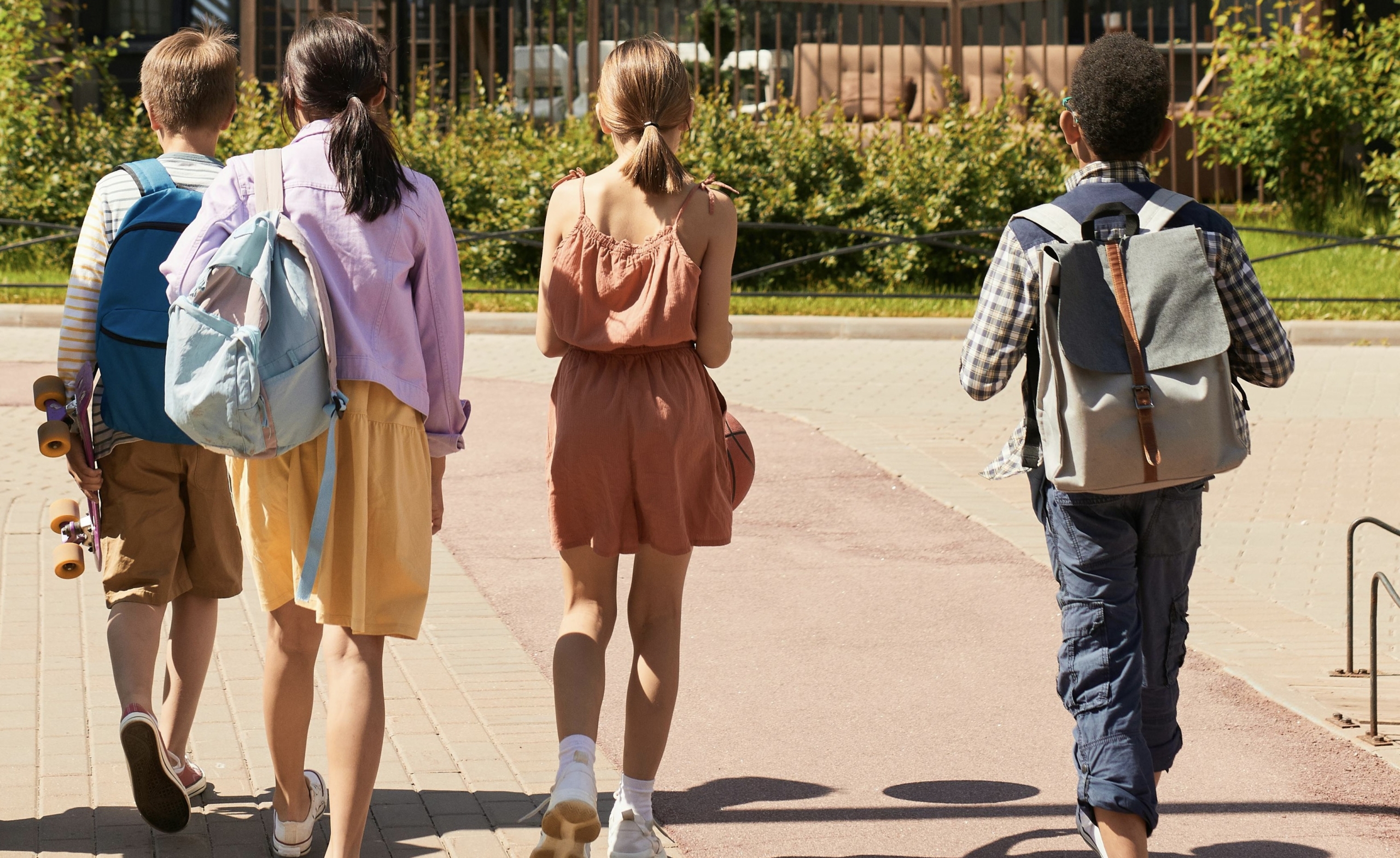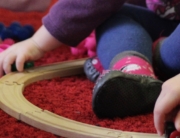The younger your child is, the more you can keep your options open. All preschool and childcare choices are private in Switzerland when children are very young. There are no subsidies for daycare once your income is above a certain level. So there is often no advantage using the local system.
Bilingual primary schools, international schools and all Swiss curriculum private schools are fee paying. Even after-school care (Hort) is income dependent. Parents think children will make friends and belong here by using the local Swiss childcare and school systems. However integration is a much longer process, and involves the whole family not just the children. Until the age of 8 it should be the parents first priority to choose the right languages, and lay the foundations for the right educational environment for their children. Rome was not built in a day and foundations cannot be laid in hour-long classes once or twice per week. Culture and language go hand in hand, I recommend 20 hours per week in a language for learning by immersion. Over the age of 11 children start to learn grammar more systematically, until then they absorb it from learning inefficiently but immersively. In order to keep their options open, they need both English and German.
At Children First we teach English reading and writing in the kindergarten. Getting reading established for pleasure at home is essential. Otherwise whenever children change schools or change languages there’ll be gaps in their learning of the basics in English. Regular German or French, Maths and Science are key to a good Swiss education. In the private system there’s more accountability for what parents are choosing and what’s delivered.
There are two ways to go local – private Swiss schools can be monolingual or bilingual at primary level, or state schools with the same curriculum in German. Both Swiss German and High German are spoken in both types of Swiss schools. There are more intensive language choices for families in the private system. Learning English, French or Italian as well as High German is possible to a native level in bilingual private schools. The difference really is that parents can choose that their children will learn written (High / Standard) German to a certain standard in the private schools because the teachers are more accountable. Otherwise there is a high risk of inadvertent confusion between Swiss German and High German in local schools because Swiss adults even if they intend to speak High German might automatically slip into Swiss German and don’t realise that they’re doing it. Go to a “Besuchstag” which are visiting days when you can observe lessons and listen to the language of the teachers. How are they using their language, and how do they handle children speaking other languages in that school or in that class? In some local free schools, they separate the children into a group of DAZ (German as a foreign language) learners.
And if your child’s in that situation, then a lot depends on the quality of German teaching in that small group and the other children in the group, because their level of language and level of education will determine how your child learns German. Look for experienced teachers who can teach in High German and who will be more aware of the differences and the difficulties for children who speak other languages. First, primarily, you need to be speaking High German when you’re learning and reading in High German so that the language, the sound of the language, and the written language are the same. And that will make a big difference to children for whom German is a third or fourth language, which is the case for many children in Zürich.
At Children First, we recommend they learn English first, so that their ears are tuned into a language that’s useful for life and is global, and easier to learn in terms of the spoken language and grammar system being the same as the written language. So we recommend that kids establish English in Kindergarten because once they move on to either part time or full time German there will never be as much time devoted to English again, in the Swiss system. Laying a path to university is a priority to all our parents, which is much harder in German than in English. Because universities in the Swiss system are exclusive, reserved for a top academic elite, not the norm as in much of Europe. Therefore parents who aren’t so sure that they’re going to stay will usually opt for Children First, followed by a bilingual private school where the English will be of a high standard as well. And that standard will be transparent as you can meet teachers before your child enrols in a private school. So I would say the private system keeps options open, whereas the free local system commits to Swiss lifestyle choices including vocational education, which may be perfectly good and lead to a good job, but may not lead to Swiss or international universities.
At what age do you have to make a decision?
Children in Zürich schools often change classes and teachers after the first three years of primary education. The Mittelstufe starts with Klasse 4. In the Swiss system this presents another change point because children won’t necessarily stay with their friends.
There are established education centres and preparation courses for Swiss Gymnasia (High Schools) in the German-speaking cantons such as fit4school so if you do choose a free school, paying for private tutoring enables some support for the students whose home language is not German or whose parents did not attend school in CH. This can bridge the culture gap as well as helping during key transitional years in the Swiss system.
Another thing that parents don’t realise is that Swiss families don’t regard schools as communities, they use schools just for learning. So the friendships that you think will remain stable and will be part of integrating in Switzerland in a local school will actually change. And they will change quite regularly because the children are moving around. And if families want to move house, then they will do that usually in the course of the first six years of primary education, and then they will be settled. Moving after age eleven is not a good idea because children become more resistant to moving as they want to keep their friends beyond that age. It’s important not to move children around too much. Change points are better in the early and primary years.
It’s good for international parents to understand that there are several points where kids can move, they are not locked in permanently. But the minute that you move into a Swiss school, you aren’t keeping your child’s university options open. Even if you have chosen a private Swiss bilingual school, that can be the case, because Swiss bilingual schools are all operating to the Canton Zurich curriculum. Parents want their child to fit in when they choose a Swiss school, not realising that it automatically limits educational choices later on. Once you are fully into any educational system, they’ll find it more difficult to make the transition into any other system or a very different type of school or another country. If you move abroad there may be a Swiss school in the new country, but it will still be a challenge to get a degree from a Swiss University, and by then your child may prefer another kind of university. So be aware that from the minute you’re doing Swiss tests and Swiss exams, it’s all geared up for Swiss apprenticeships and further education, not necessarily university education. Before you commit to a Swiss education, be sure you like it so much here that you want to stay regardless of what sort of job or uni your children get!
Regarding when you can afford to go into the free system, it depends how much your child enjoys the primary school they have attended and if they thrive there. There are selective German-French and German-Italian high schools in Zurich as well as German-English free high schools at secondary level from the age of 12.
International Schools
There are a couple of ways you can go to international universities or have options for international universities. Some international universities recognise the Swiss Matura. And some Zurich Gymnasia schools offer the International Baccalaureate at school-leaving age, albeit not on an equal basis or with the coaching that could ensure a University offer abroad. If it’s an American university, then it really is important to go to an international school that does the IB because there won’t be any other preparation for an American university if you live in or around Zurich.
And then, of course, there’s the whole interesting choice of other types of international schools in Zurich, like the French school, where, although there is a bilingual stream, the school-leaving exams are French. There are French schools and French universities all over the world. So that’s another way that children can learn in a language which is a European language, and also a Swiss language. But it’s not the local Zürich dialect. I think parents might choose state schools for integration thinking that local friends will bring happiness from a sense of belonging. But that belonging might be a lot easier to cultivate in similarly multilingual families where your international identity is shared rather than different. The sense of community around international schools, whether English or French speaking, is also very strong.
Attending international schools does not rule out making Swiss friends, as they also attract many Swiss families who appreciate multilingualism. Moving to Switzerland doesn’t mean having to learn Swiss German and German, and that’s your only route to happiness. There are so many interesting Swiss who are educated and who do choose other international routes.
So almost any of these other international options could lead to another choice of university. There are also different courses available in other languages for example some Swiss French Bachelor degrees are only offered in the French speaking part of Switzerland. However I am based in Zürich, where I can see the majority of high school leavers choose a German-speaking university.
Written by Monica Shah Zeeman









